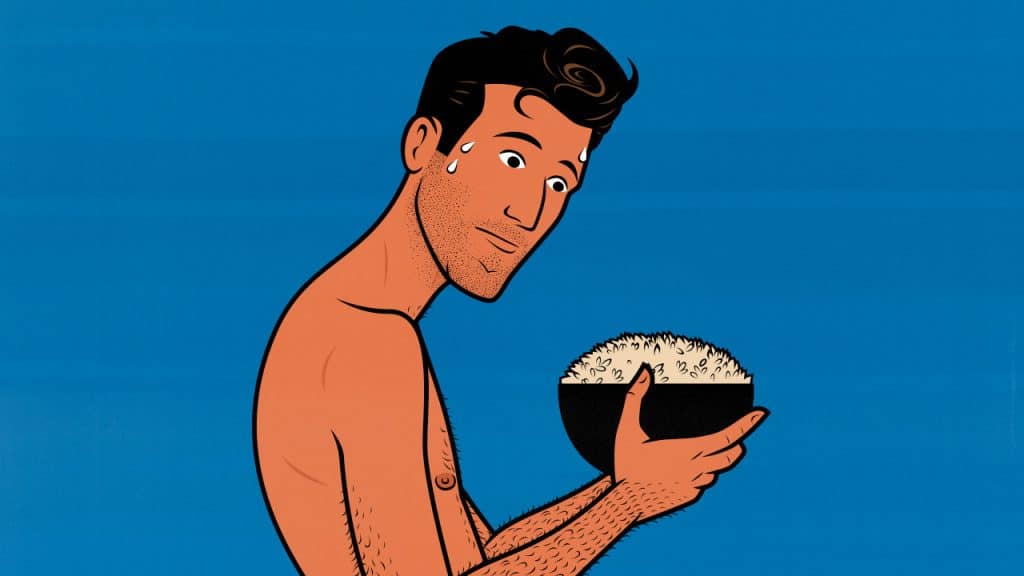
Are Carbs Good for Building Muscle? Yes, Here’s Why
Most people associate muscle growth with protein, but classic bodybuilding diets contain up to 60% carbohydrates. These diets get far more of their calories from starchy carbs like oats, rice, beans, potatoes, and pasta. Is that the correct approach? Are carbs actually good for building muscle?
Interestingly, that’s the same proportion of carbs the healthiest cultures in the world eat. Is there a benefit to eating so many carbs?
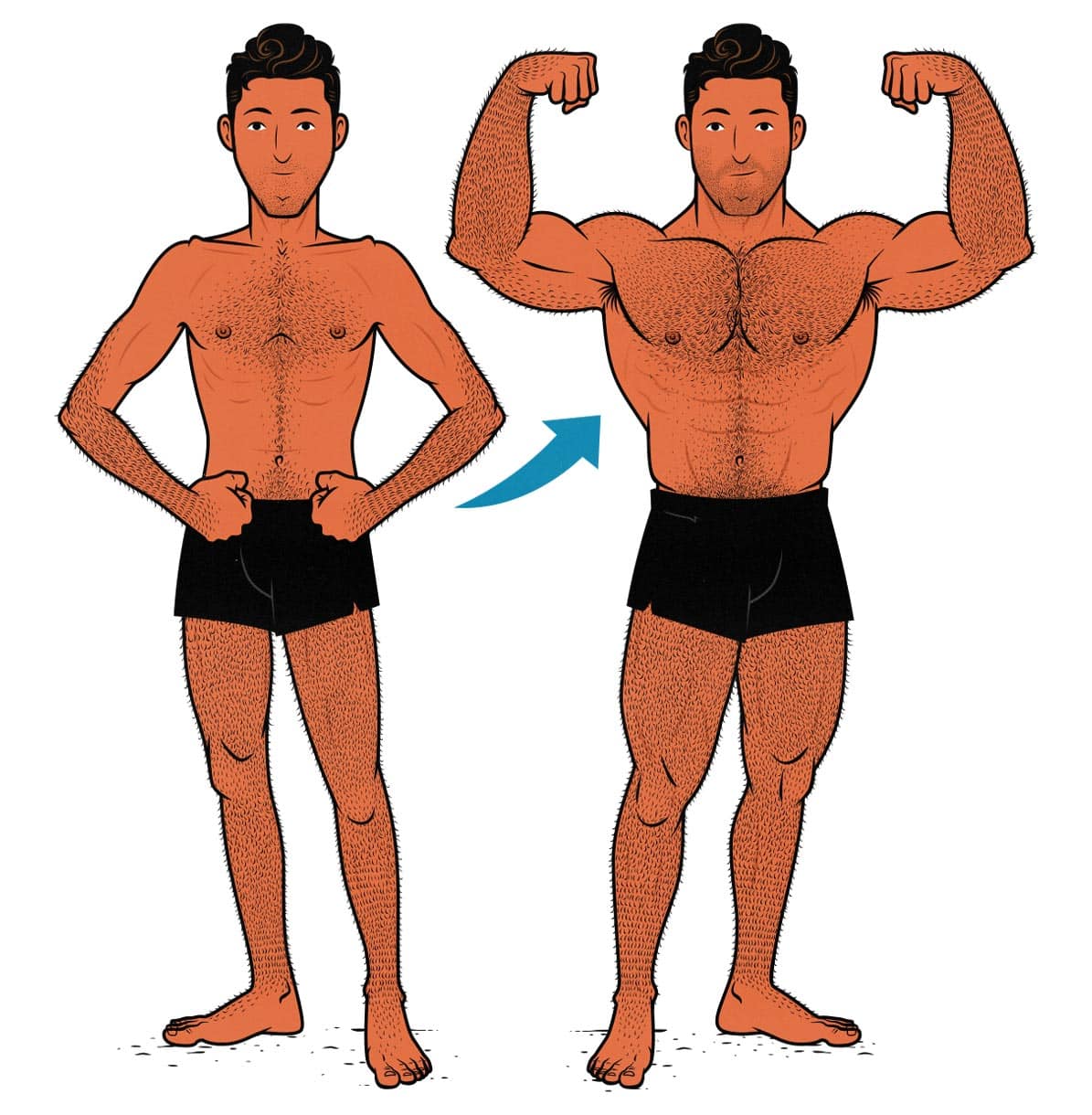
Do Carbs Build Muscle?
Muscle is constructed out of protein and then packed full of carbs. These carbs are stored as muscle glycogen, a fuel you can use when lifting weights or doing cardio. The more carbs you eat, the more glycogen you store. The more glycogen you store, the better your workout performance and the faster you can build muscle (study, study, study).
Carbs also contain calories. If you’re overweight or skinny-fat, you don’t need to eat extra calories because you’ve already got plenty of them stored as body fat. But if you’re thin or lean, you need to bulk. You need to get into a calorie surplus to build muscle, and carbs are a great way to do that.
High-carb diets can be incredibly nutritious, too. Carbs can be great sources of fibre, vitamins, minerals, antioxidants, nitrates, and many other powerful micronutrients. Your muscles will be fuller and harder, have more endurance, better blood flow, and grow faster (study).
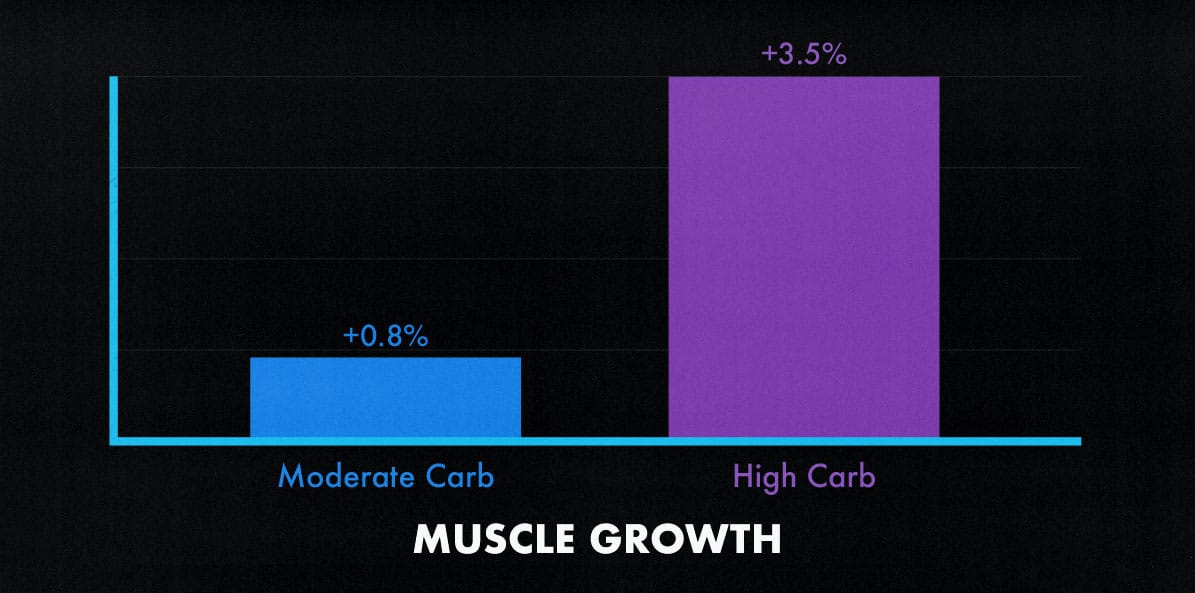
For example, a recent muscle-building study compared a moderate-carb group (3g/kg/day) against a high-carb group (5g/kg/day). The findings didn’t reach statistical significance, so we can’t draw any definitive conclusions, but the results leaned in favour of the group consuming more carbohydrates (study).
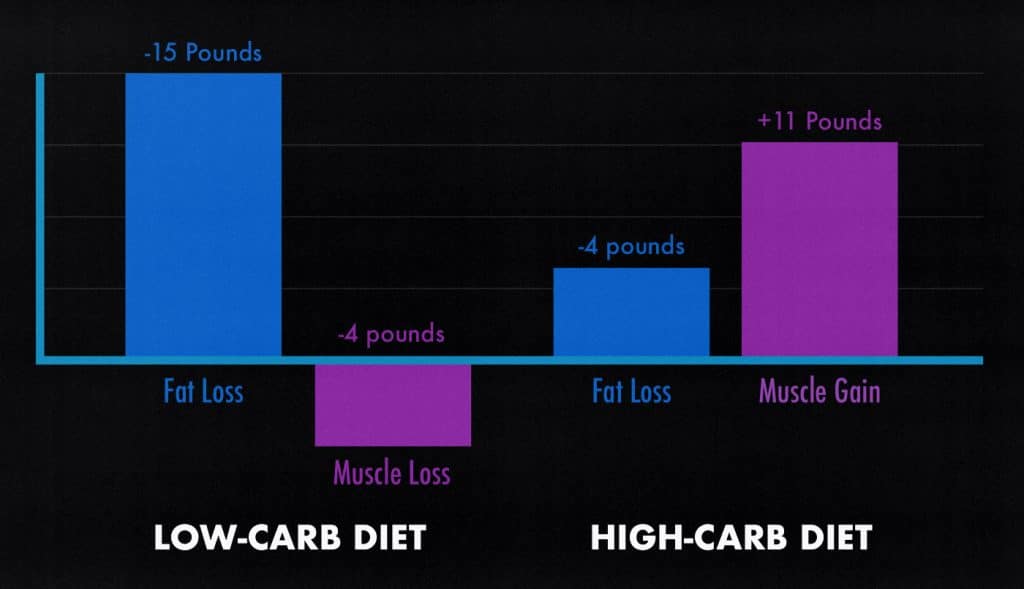
Another recent study put bodybuilders on a low-carb or high-carb diet while following a 15-week hypertrophy training program (study). The group that ate more carbs gained 11 pounds of muscle while burning 4 pounds of fat, achieving body recomposition. The low-carb group lost more weight and burned more fat, but they also lost quite a lot of muscle. Perhaps that’s because they ate fewer calories. Maybe low-carb diets make it harder to eat enough calories to support muscle growth.
Do You Need Carbs to Build Muscle?
You don’t need carbs to build muscle, but they can help you build muscle faster and more easily. Carbs make it easier to get into a calorie surplus, and they pump your muscles full of glycogen, both of which improve workout performance and muscle growth. But if you don’t eat (m)any carbs, you can still build muscle out of the protein and energy you eat.
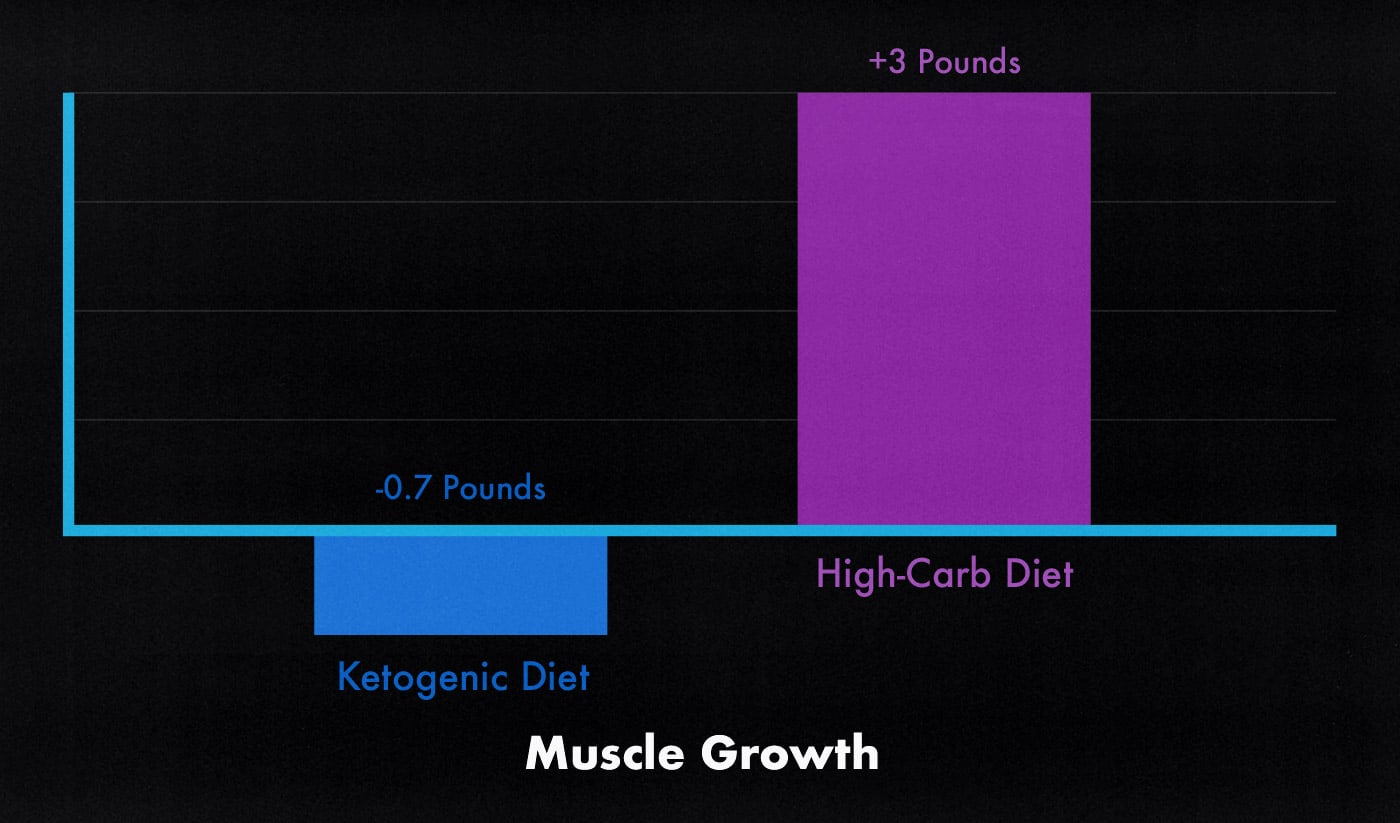
In our article on the ketogenic diet, we cover a few studies where they compared muscle growth between moderate-carb and very-low-carb diets. Most of the participants in the very-low-carb groups weren’t able to get into a calorie surplus and thus didn’t gain any muscle. So, in practice, it can be extremely difficult to build muscle without carbs.
Do Carbs Cause Fat Gain?
Carbs can cause fat gain if they cause you to eat too many calories overall. That’s true of protein and fat as well, but carbs have become a trendy scapegoat. One of the reasons carbs come under fire is that they spike insulin. Insulin is the hormone that helps us store nutrients. The thinking goes that without the carbs, you wouldn’t get the insulin spikes, and you wouldn’t gain fat.
You can think of insulin sort of like a spoon, carrying the food you eat to where it’s needed. If you eat more calories than your body needs, the spoon will help you store that surplus energy. Most people are overweight, so the last thing they need is to store more energy. That isn’t really the spoon’s fault, though. Once you’ve eaten the energy, you need to do something with it.
Also, if you’re trying to build muscle, you want to store nutrients. Your workouts stimulate muscle growth, and then the spoon carries those nutrients to your muscles. That’s how you build muscle.
How Many Carbs Should You Eat?
If you’re tracking your calories while bulking, try to get 40–60% of your calories from carbs (study, study). That’s enough to pack your muscles full of glycogen, improve your workout performance, and maximize your rate of muscle growth. It’s quite healthy, and it makes it easier to eat enough calories to build muscle.
If you aren’t tracking your calories, you don’t need to worry about exactly how many carbs you’re eating. Instead, try to include a hearty source of carbohydrates in every meal: fruits, veggies, whole grains, oats, rice, beans, lentils, potatoes, honey, and so on.
For more, we have a full article about how many carbs you should eat while bulking.

If you want us to walk you through the entire bulking process, check out our Bony to Beastly (men’s) program or Bony to Bombshell (women’s) program. They include a 5-month customizable workout routine, a full bulking diet plan, a bulking recipe book, a deep dive into lifestyle and fitness, and coaching from us.


Muscle-Building Mini-Course via Email
Sign up for our 5-part muscle-building mini-course that covers everything you need to know about:
Here are some related articles